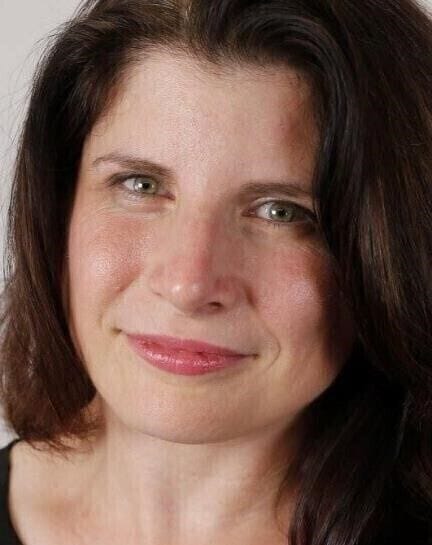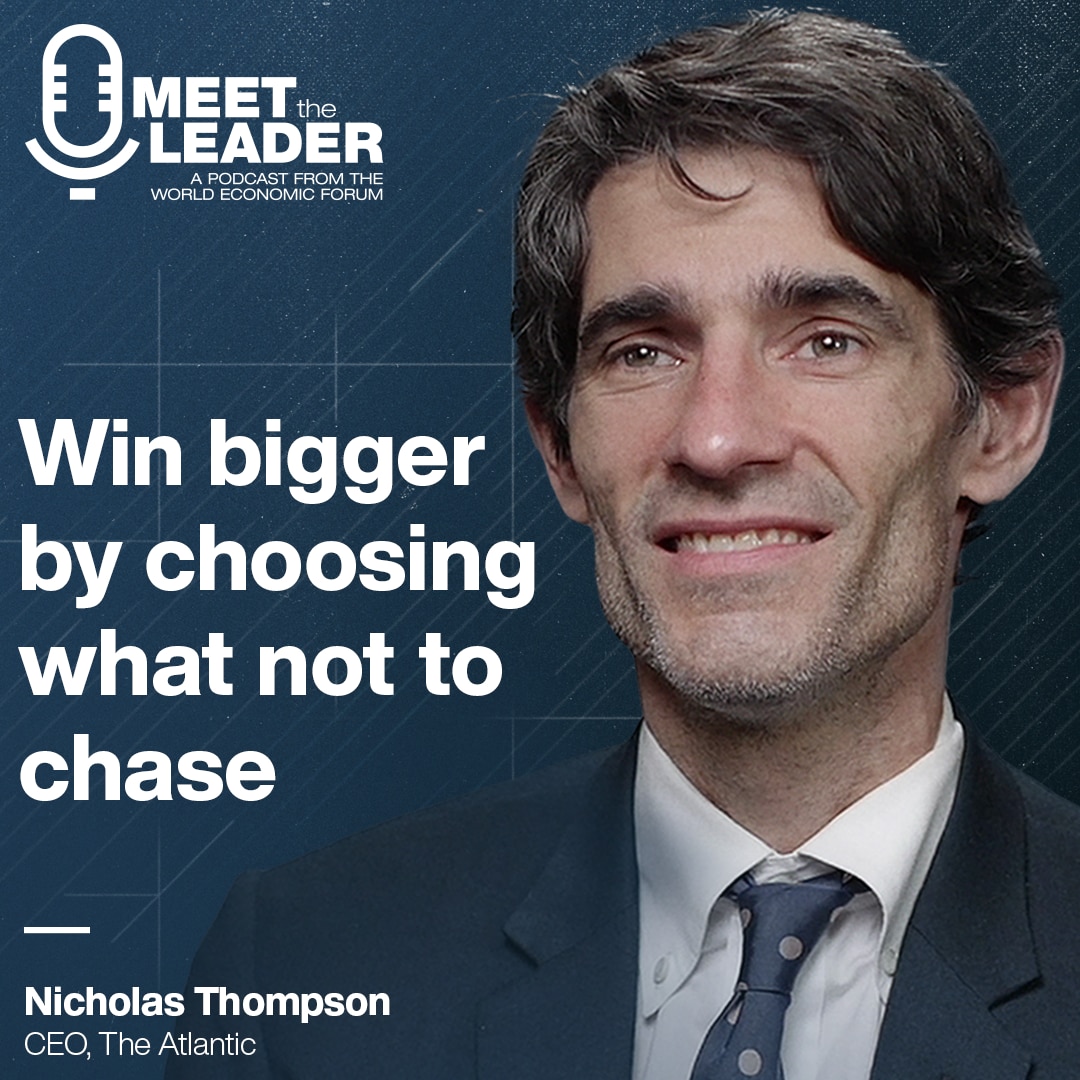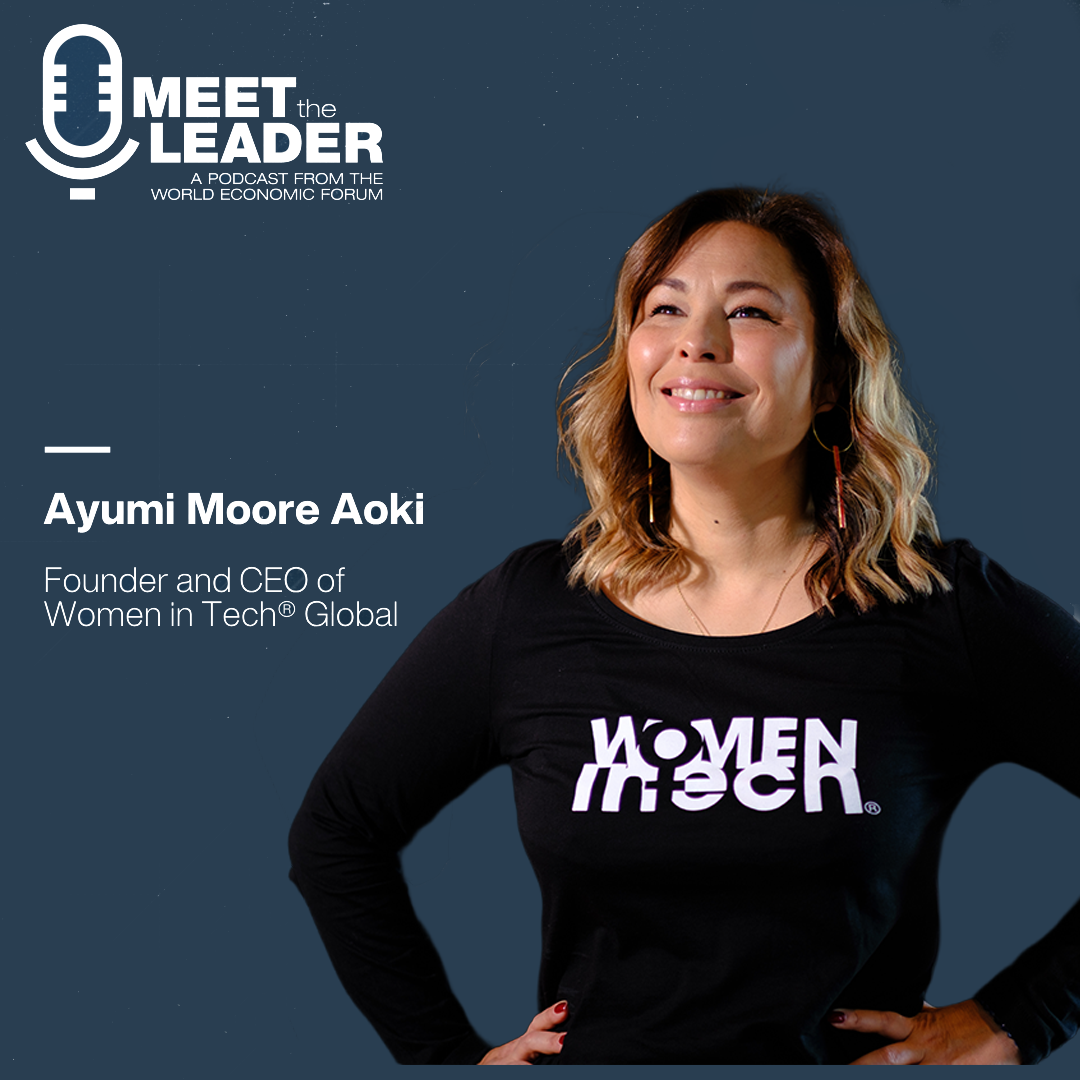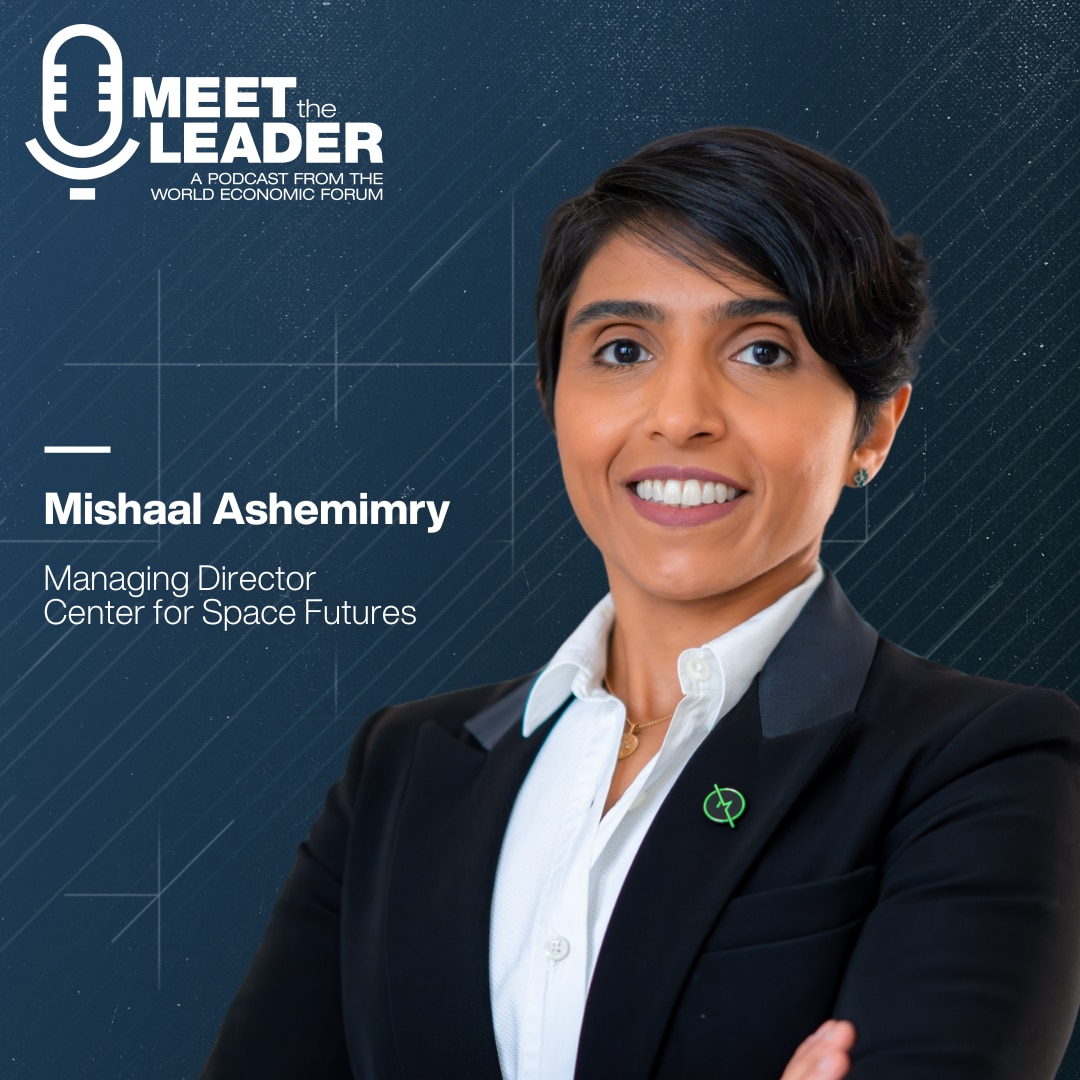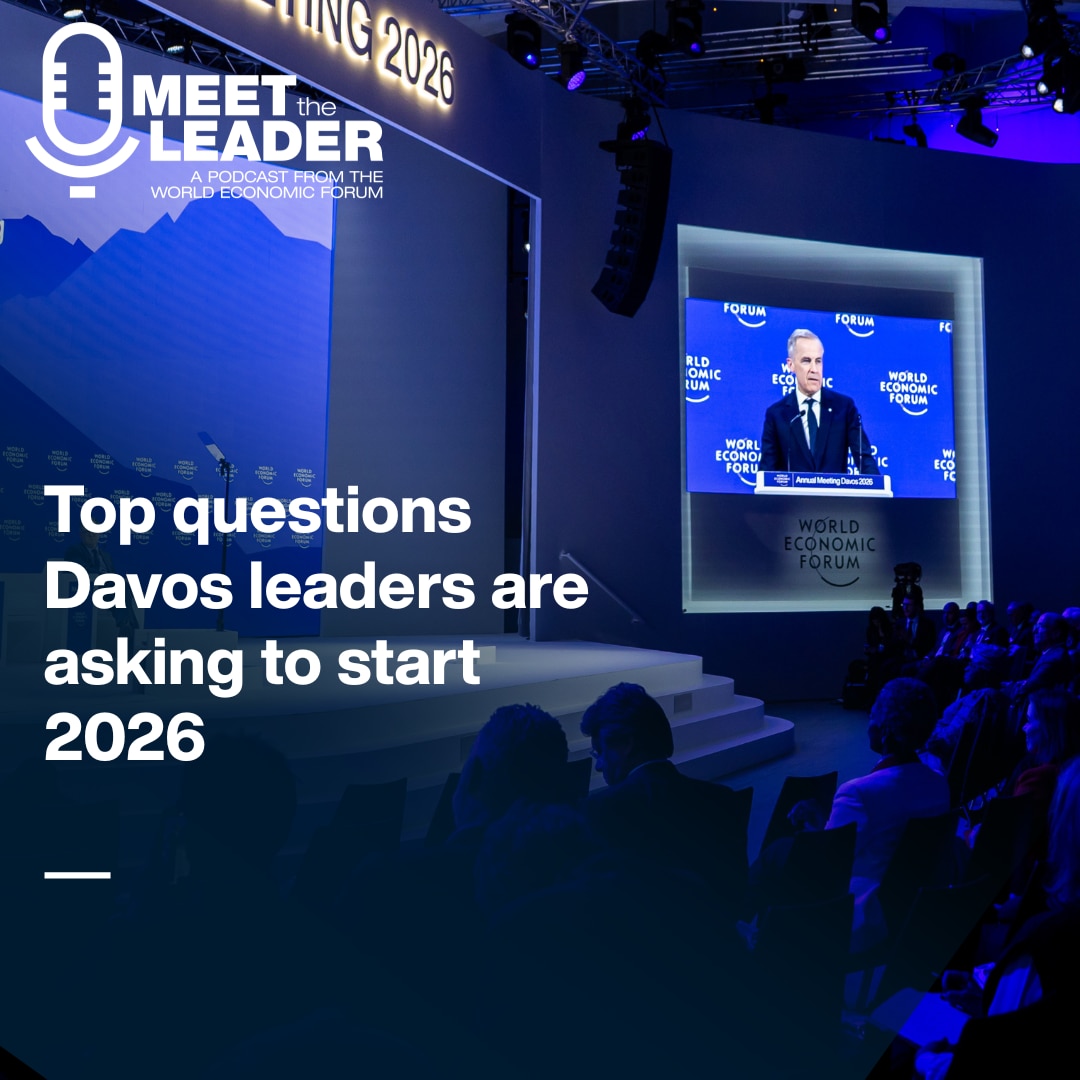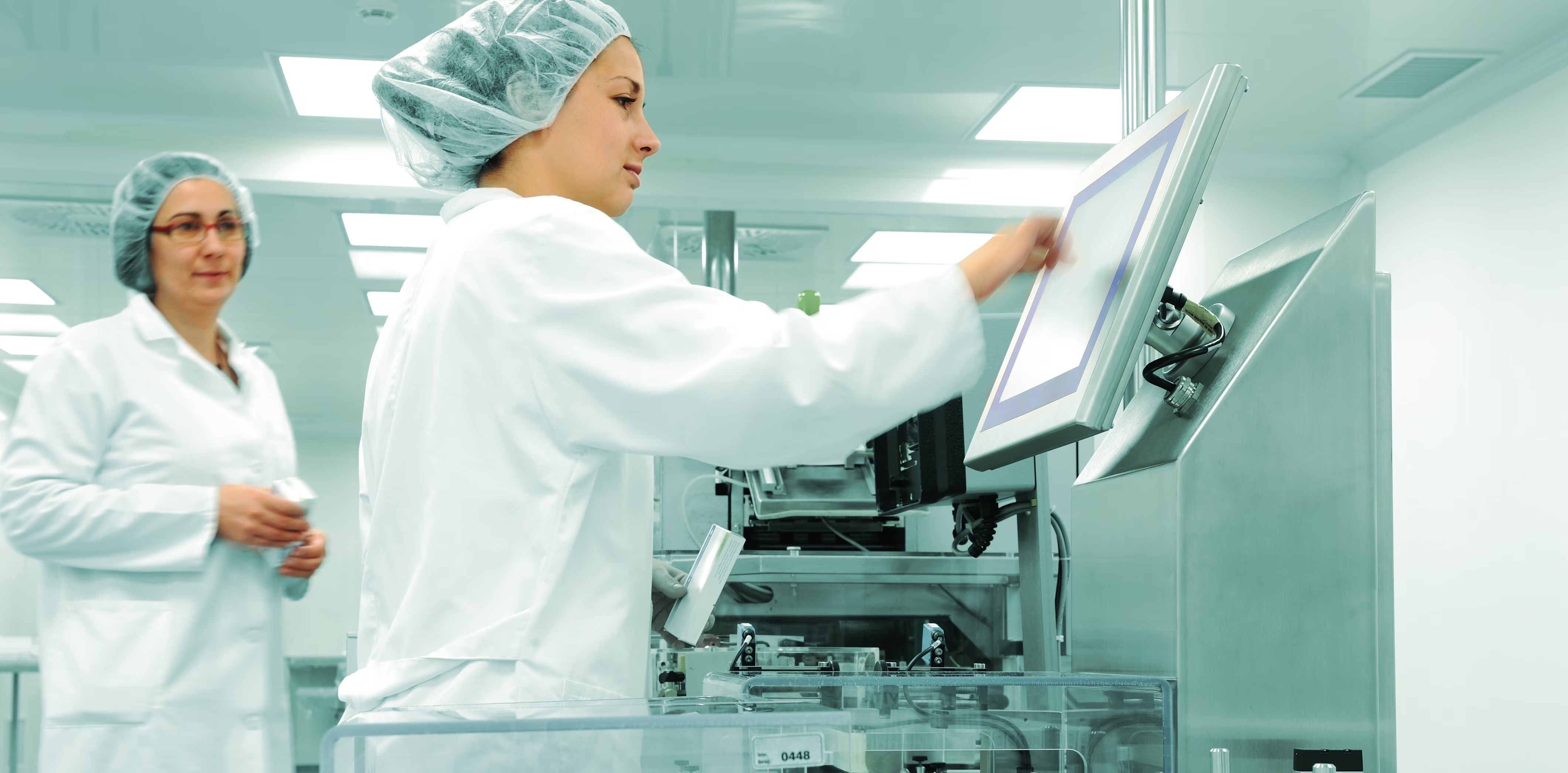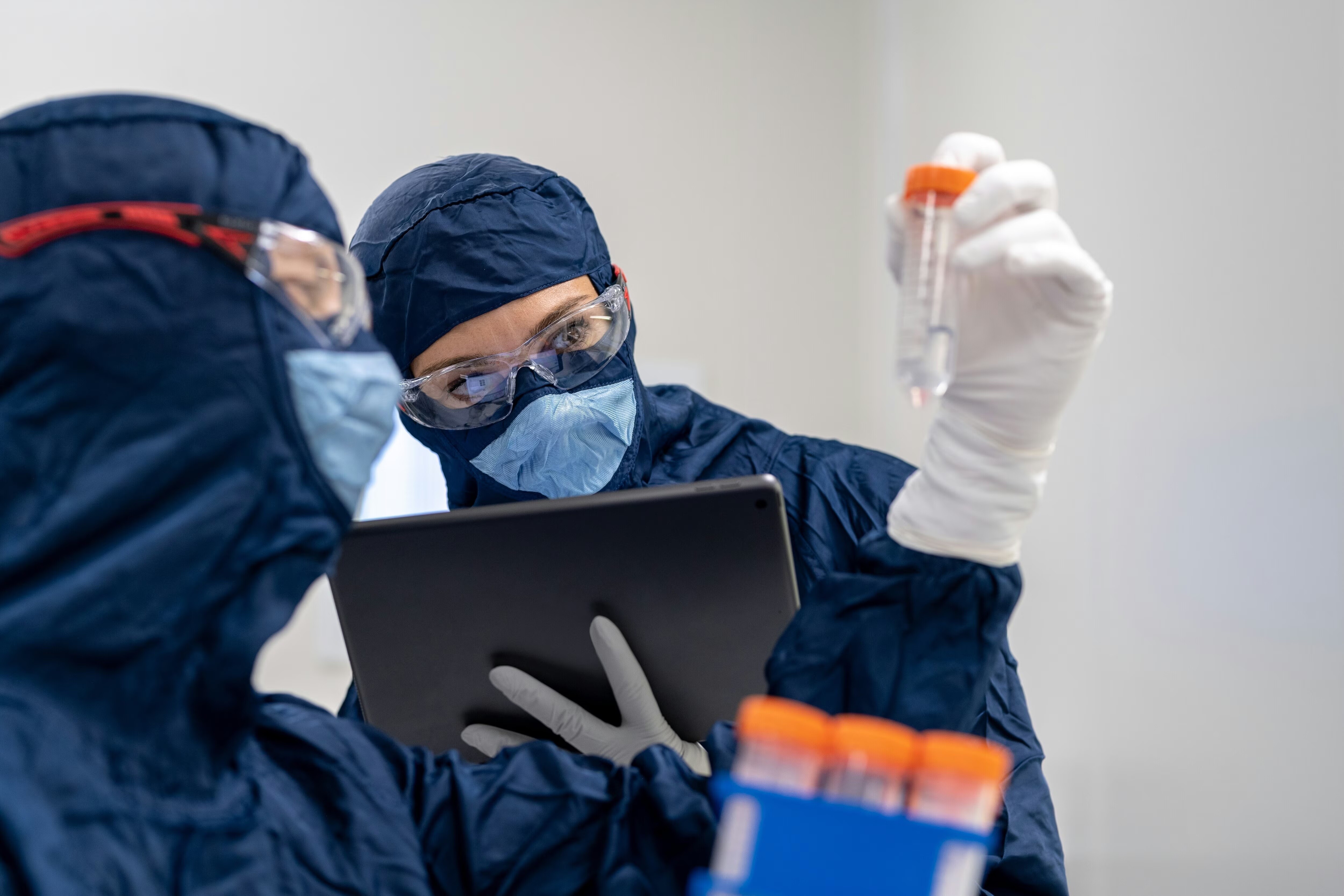Lessons that made AstraZeneca's Leif Johansson a better leader
Transcripción del podcast
Leif Johansson, AstraZeneca: When you start thinking. more than half of the population around you are idiots then start thinking which part of the world you might belong yourself.
Linda Lacina, Meet The Leader: Welcome to Meet the Leader, a podcast where top leaders share how they're tackling the world's toughest challenges. Today's leader Leif Johansson, he's the non-executive chairman at British drug giant AstraZeneca, and he'll share what he has learned as a leader in a tech career that has spanned five decades.
Subscribe to Meet the Leader on Apple, Spotify, and wherever you get your favourite podcasts. And please take a moment to rate and review us. I'm Linda Lacina from the World Economic Forum, and this is Meet the Leader.
Leif Johansson, AstraZeneca: We sort of had a tendency to have an over belief in processes, in structure, in discipline, but the real ability to combine that perhaps with the looking for entrepreneurial individuals who really want to make a difference, people who can get other people enthusiastic.
Individuals, even, make more of a difference than I thought before I entered AstraZeneca.
Linda Lacina, Meet The Leader: It's easy to react to what's right in front of you but a leader's true challenge is in how they solve for what's not obvious. That is how you truly balance the short term while shaping the long
Leif knows this well. He has a CV that spans 50 years in technology. His career has included a decade as CEO of the Volvo Group, a role as chairman at Ericsson, and most recently, for more than a decade that includes the storm of the pandemic and the history-making effort to deliver billions of vaccines to countries around the world, he served as non-executive chairman at AstraZeneca.
Guiding him in each role is what drove him to science and technology in the first place. The desire to understand how things really work. In fact, he might have become a physics professor had he not gone into business. And that desire to truly understand what's not known has shaped his leadership and his approach to problem solving.
Leif steps down this month from his role at AstraZeneca, and he talked to me about his career and the innovations he's been most proud to be a part of.
He also shared how he has changed as a leader and some key moments when he's changed his mind and changed his approach on what any leader can learn
We'll get into all of that, but first, he'll talk about the COVID-19 pandemic and what he thinks it has taught leaders around the world about seeing healthcare as a long-term investment.
Leif Johansson, AstraZeneca: When we are at our best, both as a company, but also as a healthcare sector, then we see a health as an asset that needs to be invested in, in such a way that we can get benefits in the future, and not only for patients to be less ill or exposed to less disease, but also for a health cost point of view.
So healthy populations are actually resilient populations.
Linda Lacina, Meet The Leader: And given all of these challenges that are swirling simultaneously what should leaders be prioritizing?
Leif Johansson, AstraZeneca: I think we should be prioritizing a medium to long term mindset. There, there is sometimes you know, businesses are criticized for being too short term.
I think from a political point of view, short-termism is not going to be what we want for the long-term future. And obviously that's true of institutions where we have to build trust in institutions. You build trust by transparency. We saw that in the vaccine campaign, for example, which we were deeply involved in.
You build trust by transparency, real data, sharing that and doing it in such a way that over time, population gradually builds up trust in the whole of the system. So, all of that, I think with a medium- to long-term mindset is what we should be really looking at.
Linda Lacina, Meet The Leader: While leaders are going to need to change a little bit how they're wired in order to work for the long term and factor that in, think less about what happens next quarter, what other changes will they need to have? Is it, is it only a mindset change? Is it also sort of a block and tackle way they approach their daily life? What do they need to change to make sure that they are factoring in the long term?
If you look at how we really create value over time, it does not lie in quarterly results. It lies in investments.
”Leif Johansson, AstraZeneca: Probably a little of all of that. And obviously if you're a public company, there is always this short-termism around quarterly results, et cetera, which of course are important - shareholders are an important stakeholder. But if you look at how we really create value over time does not lie in quarterly results. It lies in investments and the pharmaceutical industry is a good example of that. We invest upwards of $10 billion at AstraZeneca every year. Most of that will be for medicines that are coming out in 2030. If we don't do that, if we just looked at the short term part of that, then we would be very profitable for a short while. But we would not add value to our patients or to other stakeholders in the longer term.
I think it's a good mindset. I think media sometimes does not contribute to that because media is nowadays so powerful and so immediate that you could actually lose yourself a little in the media side and be exposed to immediacy of all of that rather than to argue the longer term.
Linda Lacina, Meet The Leader: What would be different if we switched from a 'sick care' mindset to a 'health care' mindset. What would happen?
Leif Johansson, AstraZeneca: It would be a great thing. You know, 97% of all healthcare costs is being spent after a patient feels ill and presents at a primary care centre or a hospital.
And that obviously is wrong, frankly. If we could spend a bigger proportion in early detection, even prevention and early intervention, that would be a much, much better case.
Now, whether it should be 10 / 90 or whether it should be 20 / 80 depends a little on science and technology available to us, but it also depends on the mindset of how we spend money.
And we, for example, are engaged in young health programmes in many portions of the world where we are trying to get kids to play less TV games and play more football. And those are things, how to build healthy lifestyles, which will keep that part of the population out of disease.
All of those are very important. Smoking is an obvious one. But there's so many different things that we can do in early prevention and then also early detection. And if we could spend more money up upfront, then we need to spend less money in the longer term.
Linda Lacina, Meet The Leader: And what does that world look like? So, if we really did prioritize health care, not sick care, in 20 years, what does our day-to-day look like? What is completely different? What's our before and after?
Leif Johansson, AstraZeneca: There is a number of very good diagnostic technology coming our way with one blood test, or a very small blood test, you can actually diagnose many different parts of disease.
So, I think the most obvious one is that we will be spending less time queuing for the hospital and the primary care centre and more time communicating with the system digitally.
Monitoring is a very good example of that. So, when patients become ill and need treatment our ability to deliver that treatment in the surroundings of a home rather than in hospital will be obviously from a patient quality point of view, from patient life quality point of view, will be very good and will be much more comfortable than needing to go out and take a taxi to the hospital.
But it'll also from a patient point of view be more safe and from a cost point of view, of course, a lower cost.
So, I think we can actually see a healthcare system at the real level of the patient fairly dramatically different from what we are seeing today.
Linda Lacina, Meet The Leader: If we invested in health care, then it's also an investment in economies. Why do you think there's not maybe a greater awareness of that fact?
Leif Johansson, AstraZeneca: I think that beginning to be an awareness. And I think what drives that right now is people like us coming to say, look at this, we have a wonderful world of opportunity in terms of technology and science but what's really driving it also from the political point of view, is that they see escalating cost and they see requests from their populations, their citizens, to be able to deliver reasonable healthcare. And if they cannot meet with that to a reasonable cost.
So, I think right now we have two good things coming to work together. One is the real understanding of cost and that is important for citizens for political leadership to be able to deliver on that. And then actually a whole portfolio of wonderful opportunities that can be used to be able to do that well.
So I think we have a very good opportunity to do something very meaningful in the next 10 years.
Linda Lacina, Meet The Leader: I wanted to talk a little bit about your career. Has there been maybe a past experience that's been really shaping to you that you always go back to and say, you know, gosh, this was this is relevant to me, and I've used those lessons multiple times. Has there been a shaping experience for you?
Leif Johansson, AstraZeneca: In many ways I thought I would be a professor of physics and then I was lured into business. So, so obviously that was a big step. And every now and then, I have a sad moment that I didn't continue with physics, but it's been a very rewarding life.
I have five children and one of my daughters was very critical of me when I was the head of Electrolux and it was found out that we had a problem with the CFCs and the Montreal Protocol. And I spent a little time, two minutes or so speaking to her, trying to explain to her why it was important to have CFCs, et cetera.
And, and she actually said, you know, dad, if you could use your eventual intelligence (already painful there), tell me how to do good things rather than explain bad things.
And that went home. And so I decided I should never be surprised again, because we were surprised with the CFC issue and, and I would want to be on the front line of explaining to young people how to do good things rather than bad things. So, it really took me into sustainability and environmental issues.
Linda Lacina, Meet The Leader: Is there a trait that you've depended on throughout your career? Something that, gosh, if I hadn't developed this, if I didn't do this, everything would be different.
Leif Johansson, AstraZeneca: That's a difficult question, but I think I thrive from being among people.
And, and I frankly found out that I'm not particularly good at anything by myself, but together with other people around me, I can do wonderful things. So that's probably something that has followed me. My family are joking with me saying that I have a Laplander disease - I get green in my face if I'm alone more than a half an hour. That's probably something that has been very much part of my career.
Linda Lacina, Meet The Leader: Physics is really about understanding how everything in the world works. That desire and that appeal, how has that bled into your work elsewhere in your career, that desire to sort of know and want to know that curiosity, how things work?
Leif Johansson, AstraZeneca: It has certainly taken me into very intensely technology- and science-based industries. And I have a very genuine interest in trying to understand how things work. That's almost a reflex from education there, but also interest.
And I think it is important that we ask ourselves the question, how does this really work? Rather than only create opinions about it. And I think that's true. It's certainly true in business. I think it is true in the types of businesses that I've been involved in. But I think it might be true on a political level too, that we have to work with real data. We have to really have an understanding of the basics of a problem rather than forming opinions too early.
We have to work with real data. We have to really have an understanding of the basics of a problem rather than forming opinions too early.
”Linda Lacina, Meet The Leader: You've been in this particular role for 11 years, how have you changed as a leader just in that time?
Leif Johansson, AstraZeneca: I think perhaps in, in this role, one of the things that (and I used to be as an executive, you know, I was an executive for 23 years. This is now chairman's role) I think what has really been brought home to me during this period is that people make a difference.
We sort of have a tendency to have an over belief in processes, in structure, in discipline, all of which are good words and all of which need to be there. But the real ability to combine that perhaps with the looking for entrepreneurial individuals, people who really want to make a difference, people who can get other people enthusiastic, people who can be running for a long while with energy and passion, without wearing themselves out, et cetera.
So, people actually do make a difference. Individuals, even, make more of a difference than I thought before I entered AstraZeneca.
Linda Lacina, Meet The Leader: Is there something that you do now that maybe would not have occurred to you at the beginning of your career?
Leif Johansson, AstraZeneca: I think I am actually a better leader in terms of listening more.
There is a joke somewhere that you can reach the anecdotal age when you tell everyone what you used to do, rather than listening to what needs to be done, I'm trying to escape that anecdotal age and stay with a listening mode instead.
With experience and with age, you lose a little of the energy and, and the real intensity of the energy that I had when I was younger.
You can reach the anecdotal age which when you tell everyone what you used to do, rather than listening to what needs to be done. I'm trying to escape that anecdotal age and, and stay with a listening mode instead.
”But you get a better opportunity to listen in to people and to be slightly slower in making up your mind too quickly. And then give people a chance to really talk through what they're trying to do.
Don't make people nervous. Make people feel secure that that you're listening to them and you're serious with them.
People often confuse speaking yourself with being an active person. I think listening actively is actually a more important trait.
Linda Lacina, Meet The Leader: You're going to retire from the chairman role this year. What's something that you look back on as a highlight where you're like, you know what, I'm really glad that I was part of that?
Leif Johansson, AstraZeneca: I think this whole exercise that we had with vaccines where we were able to very quickly, based on academic science, be able to deliver 3 billion doses of vaccines in 180 countries and we decided to do it at no profit. That is clearly a highlight of what we have been doing over the past 10 years.
It's not the most important thing that we have been doing. The most important thing has actually been to fuel up a pipeline of new drugs in such a way that we have growth coming over the next couple of years, at least, and hopefully many years. So that's the most important thing we have done. But the most exciting things perhaps, and what I will remember most, will be the vaccine campaign.
Linda Lacina, Meet The Leader: Is there a piece of advice that you've always been grateful for?
Leif Johansson, AstraZeneca: Absolutely. I had a leader once, a very strong l leader and, and when I was a young man, I had a job that was not so easy. So, I came to him and, and I told him everything that I felt was wrong with, with what people had done earlier than that.
When you start thinking more than half of the population around you are idiots then start thinking which part of the world you might belong yourself.
”And I said, this is wrong. You know, this is obviously wrong. Why we shouldn't be doing this way, et cetera. And, and he became quite aggravated because he had been responsible for most of that. And he said, you know, Leif, when you start thinking more than half of the population around you are idiots then start thinking which part of the world you might belong yourself.
So, so that was, I remember that. And that takes me out of being too critical. It takes me more out of being part of and let's now decide what we want to do for the future rather than be critical of the past.
Linda Lacina, Meet The Leader: If you were going to give advice to yourself for the beginning of your career, what would you tell him?
Leif Johansson, AstraZeneca: I would probably acknowledge that I've had a sense of adventure in my life in, in not hesitating to switch industries or companies or even technologies and sciences. There are a couple of times where I, probably with what I know now, could have said, “You could have done that even more. And you obviously enjoyed what you were doing, so you could have done it even more.”
So that's probably a good piece of advice. Be a little adventurous and try things out.
I had a good friend who had a very good theme. He says, check, check everything out. Decide later. That's not so bad. Check it out. Decide later.
Check everything out. Decide later.
”Linda Lacina, Meet The Leader: That was Leif Johansson. Thanks so much to him and thanks so much to you for listening. A transcript of this episode and my colleagues’ episodes, Radio Davos and the Book Club podcast is available at wef.ch/podcasts.
This episode of Meet the Leader was presented and produced by me with Juan Toran as studio engineer, Jere Johansson as editor and Gareth Nolan driving studio production.
That's it for now. I'm Linda Lacina with the World Economic Forum. Have a great day.
With a career that spans nearly 5 decades in science and technology -- one that includes time at AstraZeneca during its history making effort to deliver billions of vaccines to countries around the world -- Leif Johansson shares his unique lessons learned. Before he stepped down from his role as non-executive chairman 27 April, he shared with Meet The Leader how his interest in physics has made him a better leader, the key moments that shaped him and even changed his mind, and the advice he's been most grateful for.
Alojado por:
Más episodios:
La Agenda Semanal
Una actualización semanal de los temas más importantes de la agenda global
